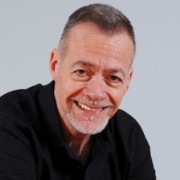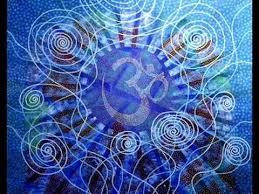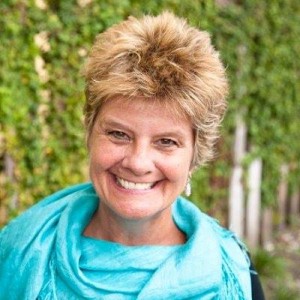David Fawcett, PhD, LCSW

It was 1982 when my friend Andrew developed an odd pneumonia that put him in the hospital and ran through his body with such ferocity that he was dead in three days. My friends and I were stunned, until it soon happened again – this time with another acquaintance who survived longer, but ultimately succumbed to an illness the New York Times called “GRID,” gay-related immune deficiency. GRID soon became AIDS, and one by one almost all of my friends became sick.
Thus began a journey that continues to this day, first marked by terror, then sadness, then overwhelming grief, and then by sheer determination as we stepped up to care for each other. My life as a thirty-something gay men in New York was quickly transformed from exuberance in the aftermath of Stonewall to determination marked by caretaking and political advocacy.
The energy on streets in the Village and the Upper West Side, once both high-spirited and sexually charged, became heavy with sadness. Many men simply disappeared as the disease confined them to their homes, or their friend’s homes, or hospital wards. Many died. Others were out using the patchwork of services that began to develop in response to the crisis. The streets were filled with the odd sight of thin men with wide terrified eyes walking awkwardly with canes. I vividly recall one very cold winter day when I helped one frail young man struggle across Seventh Avenue through slippery frozen slush on his way to St. Vincent’s.
Despite persistent optimism and a strong sense of spirituality, for me the eighties became a human tragedy. My life was entwined with AIDS at every level: intimate, social, and community. As we lost one friend after another there was nothing to do but go forward, caring for those who were dealing not only with physical illness but also struggling with the emotional pain of rejection and stigma. And AIDS kept coming.
One price we paid, among many, was never really stopping to grieve because so much needed to be done. We hardened our emotions and our resolve – there was simply too much to do. Men of my generation live with a great wound that, for many, remains unacknowledged and unexpressed. We need to heal, even in the face of the ongoing epidemic.
Now, nearly thirty years later, AIDS continues to create suffering. For many, it has lost its urgency. A new generation has grown up with the disease and new medications, and view it as a manageable illness, but it is relentless and continues to demolish lives. Long term survivors have developed an acceptance of the unknown. They have given their bodies to drug trials and dealt with multiple losses, either through the death of partners and friends, or alienation from family. Ironically, they now face a new wave of heart, liver and kidney disease as a result of the medications that have kept them alive.
We need to remain vigilant about AIDS. We need to advocate for new treatment alternatives like rectal microbicides and redesigned prevention efforts. We need to remain informed and fight complacency. We need to end the stigma that surrounds AIDS to this day, undermining both prevention and treatment. Mostly, on this World AIDS Day, we need to remember the pain, the lessons, the courage, and the successes of the past and use them to renew and reenergize our continued work to end AIDS once and for all.





